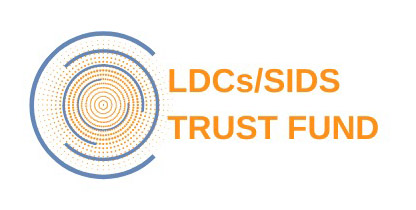Practical Training on Human Rights Council Procedures for SIDS/LDCs


UN Photo / Jean-Marc Ferré
An Executive Course for Geneva-Based SIDS/LDCs Diplomats on the UN Human Rights Council
This hands-on training is designed specifically for diplomats from Small Island Developing States (SIDS) and Least Developed Countries (LDCs) who are current or prospective members of the United Nations Human Rights Council (HRC). Co-organized with the support of the SIDS/LDCs Trust Fund of the Office of the High Commissioner for Human Rights (OHCHR) and the Permanent Mission of the Republic of Singapore to the UN in Geneva the training focuses on equipping participants with the procedural knowledge and practical skills needed to effectively engage in the work of the HRC, especially in drafting, negotiating, and adopting resolutions.
Background
SIDS and LDCs encounter distinct structural and resource-based constraints in their engagement with the United Nations human rights mechanisms. The limited representation of diplomatic missions in Geneva, reduced staffing capacities, and the absence of personnel dedicated specifically to the HRC often restrict their ability to engage meaningfully and consistently in the Council’s multifaceted deliberations and decision-making processes. And the HRC’s increasing workload, through extended sessions and intersessional activities, only adds up to the constraints already facing SIDS and LDCs.
To address some of these constraints, the HRC, through its resolution 19/26, established the Voluntary Technical Assistance Trust Fund in 2012, which became operational in 2014. The Trust Fund was designed to facilitate the effective participation of eligible SIDS and LDCs in the work of the Council, particularly for those without permanent representation in Geneva. Since its inception, the Fund has supported the participation of 290 government officials from 72 countries, with the backing of financial contributions from 38 donor states.
While the Fund has played a significant role in enhancing the representation of SIDS and LDCs at the HRC, delegates from these countries continue to highlight the need for more targeted, practice-oriented training. Beyond acquiring knowledge of the Council’s procedures, there is a growing demand for capacity-building initiatives that enable delegates to actively shape and influence the Council’s outcomes. This includes strengthening their ability to conduct negotiations, propose and respond to amendments, engage with procedural motions, and participate effectively in voting processes.
This training is designed to respond to these needs through a highly interactive and scenario-based approach. It aims to dive deeper into the internal functioning of the Council and provide delegates with practical tools and simulated experience, thereby enhancing their capacity to navigate the HRC’s working methods.
The course will cover the following issues:
- The structure, functions, and procedural framework of the HRC, with a focus on its decision-making processes
- The drafting and negotiation of HRC resolutions, including practical considerations for SIDS and LDC delegations
- Practical simulations of Council debates and voting sessions, allowing participants to apply knowledge in a controlled environment
- Techniques for effective oral interventions and informal consultations during HRC meetings
- Case studies based on past Council sessions involving SIDS and LDCs
- Strategies to enhance the impact and visibility of SIDS/LDC engagement within the Council
Objectives
By the end of the course, participants will:
- Obtain an in-depth understanding of the procedural workings of the HRC, including drafting, negotiation, and voting processes
- Be equipped with practical tools and strategies for participating in the adoption of resolutions
- Develop leadership qualities and strategic thinking to address challenges within the HRC and beyond.
- Build valuable professional networks with peers from SIDS/LDCs, fostering ongoing collaboration.
Exclusive Features
Participants will receive personalized feedback throughout the course, engaging with experienced trainers in a challenging yet supportive environment. The programme emphasizes active learning, ensuring that participants leave with practical skills and strategies ready for immediate application in their diplomatic roles.
Methodology
The course adopts an interactive and participatory approach, blending illustrated lectures, multimedia resources, discussions, and hands-on exercises, including simulations that mirror the Council's working methods. Participants will receive preparatory reading materials to maximize engagement during the sessions.
Audience
This training is intended exclusively for Geneva-based diplomats from SIDS/LDCs, who are current members of the Human Rights Council or are planning to stand for membership. It is specifically designed for delegates seeking to strengthen their operational understanding of the Council’s procedures and enhance their practical engagement in its work.
Organizers are committed to ensuring gender and regional diversity. Participants must attend at least 80% of the sessions to earn the final certificate.
The language of instruction during the training is English. All candidates must possess a level of proficiency in English that enables them to actively participate in the training.
Access to a Dedicated Community Platform
All participants in our training course have access – ahead, during and following their course – to a dedicated community platform (on Mighty Network). This community brings together all the participants to our courses who have unlimited access to the training materials and resources shared during their course and can exchange with all the alumni of the Geneva Human Rights Platform Training Hub.
Lecturer
The training course will be led by Eric Tistounet, Former Chief of the Human Rights Council Branch at the Office of the High Commissioner for Human Rights, and author of the textbook entitled ‘The UN Human Rights Council: A Practical Anatomy’, published by Elgar Publishing in February 2020.
Certification
Participants who successfully complete the training course receive a certificate of participation from the Geneva Academy.
Fee
This training is supported by the OHCHR, in particular the SIDS/LDCs Trust Fund and the Permanent Mission of the Republic of Singapore to the UN Office in Geneva, and is provided free of charge for Geneva-based SIDS/LDCs diplomats.
How to Apply
Applications must be submitted via this online application form.
If you have questions, do not hesitate to contact us: This email address is being protected from spambots. You need JavaScript enabled to view it.











